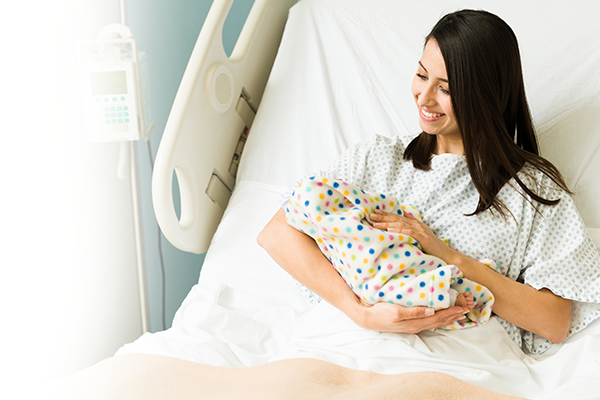Herpes is a viral disease of the mucous membranes that appears when the body is weakened. The virus is transmitted by the droplet route and most cases are asymptomatic. The appearance of herpes in a pregnant woman can pose a risk to the fetus, so it is necessary to treat it. Therapy involves the administration of antiviral drugs.
With herpes in pregnancy, the location does not matter, what matters is whether the woman has ever had the disease. If the mother-to-be has not been exposed to the virus and this is her first infection, the lip form of herpes can be just as dangerous as the genital form. Why does it appear during pregnancy and how to guard against getting sick?
Herpes and pregnancy
Nearly 80% of the population struggles with the herpes virus. In most, the infection is latent and causes no symptoms, which does not mean that the virus does not spread. Herpes simplex virus is very easy to contract. It is transmitted by the droplet route – through touch, contact with the affected person’s objects and sexual contact. Those with defective immune systems are susceptible to infection.
In a pregnant woman, the immune system is weakened as a result of the hormonal changes taking place in her body. It is then susceptible to any infections. This is why pregnant women get herpes during pregnancy much more often than other women.
Many ladies wonder if this could be a sign of pregnancy, since herpes appears. The symptom of pregnancy is not a virus, but other ailments. The fact that the immune system is then weakened only increases the predisposition to get sick. Regardless of the circumstances, herpes in the first trimester of pregnancy is very dangerous. Through the virus, fetal malformations can occur.
Herpes viruses have two varieties: herpes labialis, which is caused by Herpes simplex virus 1 (HSV 1), and genital herpes, which is caused by Herpes simplex virus 2 (HSV 2). The herpes virus in pregnancy is not always dangerous.
Herpes on the lips during pregnancy
Herpes labialis in pregnancy is caused by HSV 1 virus. The infection is usually localized around the nose, mouth and eyes. The characteristic symptom of herpes labialis in pregnancy is the appearance of small but painful blisters filled with serous fluid within the oral cavity. After a few days with proper treatment, the lesions begin to fester and turn into persistently itchy scabs.
Herpes on the lips during pregnancy is not dangerous to the fetus, as long as the infection did not occur for the first time (known as primary infection). A pregnant woman who has not been exposed to the virus before may have trouble carrying a pregnancy. With primary infection, there is a high risk of fetal distress or death.
Keep in mind that if proper precautions are not taken, herpes in pregnancy on the lips can easily turn into genital herpes. Genital herpes in pregnancy is a very high risk for the baby.
Genital herpes in pregnancy
Genital herpes is caused by the HSV 2 virus. Vesicles filled with serous fluid appear in the genitals and rectum. They rupture after a few days, and painful sores form in their place. HSV 2 virus can cause fever. Enlargement of lymph nodes is also characteristic.
Herpes of the labia during pregnancy is a very high risk for the fetus. A baby can contract the virus while still in the womb. Intrauterine infection can be tragic in its consequences. In some cases, it causes hydrocephalus, microcephalus or damage to the central nervous system in children. Herpes in the third trimester of pregnancy can cause premature labor.
Genital herpes in pregnancy is also dangerous at the time of delivery. During natural childbirth, the mother can infect the baby. Therefore, large viral lesions in the vulva area are an indication for a cesarean section.
Herpes in pregnancy – what to use?
For herpes labialis infection during pregnancy, treatment consists of ad hoc antiviral preparations. These can be ointments, antiviral pills prescribed by a doctor or home remedies, such as applying vinegar, onion, lemon or infusions of herbs with antiseptic properties (chamomile, sage, oak bark).
A woman should inform her doctor about the symptoms of the virus. Therapy should be recommended immediately, especially if genital herpes occurs during pregnancy. Treatment of this form of herpes requires antiviral medications, which are by prescription. If it is the end of pregnancy, the doctor may decide to have an early cesarean section.
See also: Catarrh in pregnancy – how to treat it?
Rate this article:









